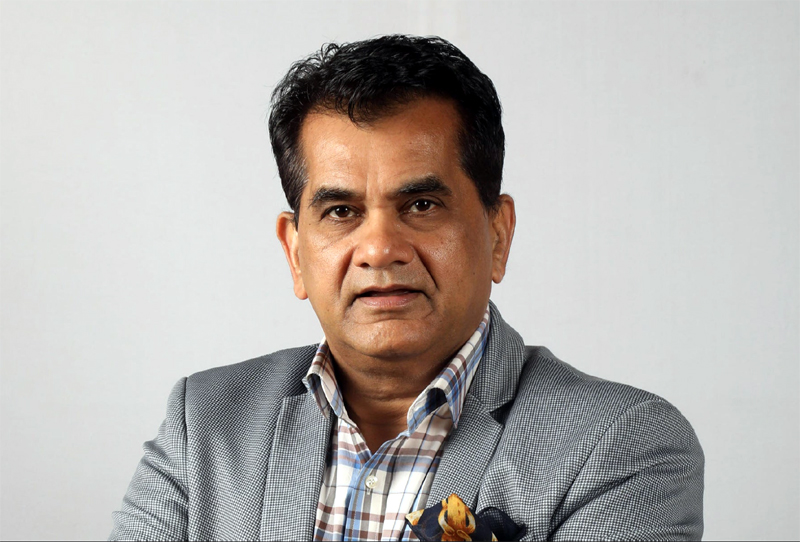NEW DELHI, Jan 25: India’s diverse strategy for growth, fueled by reforms, digital advancements, sustainable initiatives, and strong infrastructure, has not only transformed its economy but has also established it as a significant entity on the global economic scene, according to Amitabh Kant, the G20 Sherpa and former CEO of NITI Aayog, speaking on Saturday.
As the international community turns its attention to the Global South, India’s ongoing development is set to be crucial in shaping the future economic landscape.
Presently the fifth-largest economy globally, India’s growth narrative is marked by resilience, innovation, and strategic reforms, positioning it to potentially overtake Germany and Japan by 2027.
The International Monetary Fund (IMF) reports that 75-80 percent of the world’s growth this year will emanate from the Global South, with India and Indonesia leading this momentum.
“For substantial global growth, as indicated by the IMF, 75-80 percent of this year’s growth will arise from the Global South,” Kant remarked at an event hosted by the Association of Mutual Funds in India (AMFI).
Both the IMF and World Bank predict that in the next thirty years, three-fourths of global growth will be attributed to the Global South, primarily driven by a youthful and dynamic demographic poised to be instrumental in economic progress. Conversely, the populations in Europe are aging, and America has already attained a similar demographic stage, Kant noted.
Kant pointed out the impressive transformation of India over the past decade from being classified by the IMF as one of the “Fragile Five” to emerging as a global economic leader.
This evolution has been propelled by bold structural reforms, including the introduction of the Goods and Services Tax (GST), the Insolvency and Bankruptcy Code, the Real Estate Regulation and Development Act (RERA), and initiatives aimed at enhancing the Ease of Doing Business. These actions have laid the groundwork for consistent, competitive growth, Kant explained.
He further emphasized that India’s dedication to financial inclusion has been a critical factor in its economic advancement. In 2016, only 18 percent of Indian women had access to bank accounts, but today that number has skyrocketed to an impressive 91 percent, highlighting the nation’s achievements in promoting financial accessibility.
India is also making notable progress in producing and distributing Green Hydrogen, a clean fuel alternative essential for the country’s decarbonization objectives.
Kant underscored the significance of these reforms and initiatives in facilitating India’s ascent on the global stage. He pointed out that future growth in India would be driven by ongoing investments in infrastructure, digital innovation, and environmental sustainability. With these foundational elements in place, India is poised to become a USD 30 trillion economy by 2047. (PTI)


Leave a Reply